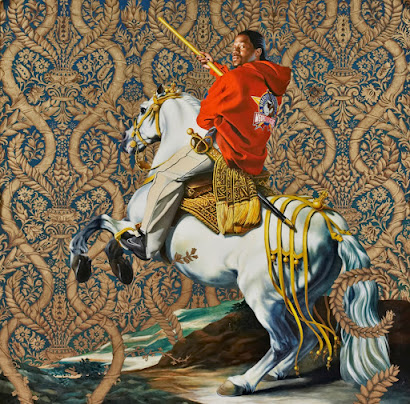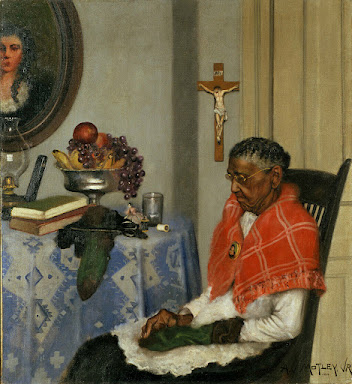Fighting Invisibilty?

Equestrian Portrait of the Count Duke Olivares by Kehinde Wiley (2005) Having now finished Invisible Man , I find that there is an aspect of the novel that I am conflicted about and have been since the prologue: the narrator’s acceptance of his invisibility. In the prologue, when the narrator is first introducing the concept of invisibility, he says, “I am not complaining, not am I protesting either. It is sometimes advantageous to be unseen, although it is most often rather wearing on the nerves” (3). I find this passage interesting because the narrator is explicit about the hardships of being invisible (and then proceeds to write a whole book about them), but he also seems rather accepting of his invisibility. On one hand, I think it would be impossible for the narrator to be “visible.” His invisibility is completely out of his control and has entirely to do with the fact that he is a black man living in a racist society. Additionally, before discovering his invisibility, the ...
